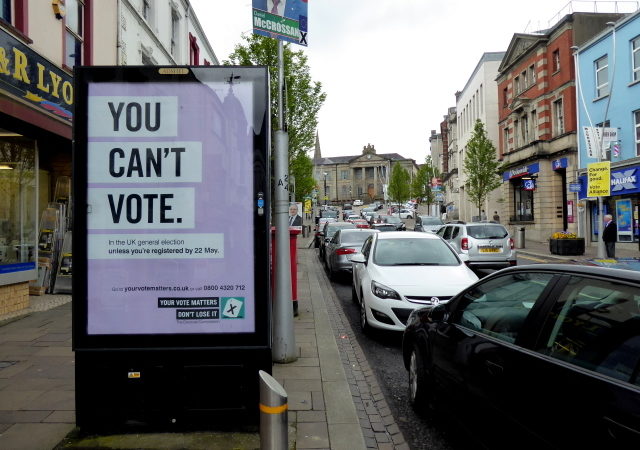Calls are growing for Labour to look beyond its own structures and work out how to democratise the country as a whole.

On the eve of Labour conference, the debate over open selection is reaching fever pitch. It is a battle over democracy – or competing visions of it.
For the moderates, it is a question of representative democracy: MPs primarily beholden to their electorates rather than party members. For Corbynistas, it is a question of radically reforming the Labour party through empowering ‘the movement’.
In the Guardian, Owen Jones writes:
“Socialism is the democratisation of every level of society, or it is nothing…Under the prevailing system, the same vested interests remain in power whoever is in office.”
There is some truth to this. But the Labour party does not have a compelling vision for reviving democracy in the UK – yet.
This country is among the most centralised in Europe. We have a totally unelected House of Lords. And a voting system for the Commons that means – unlike in Scotland, Wales, Northern Ireland (and indeed the island itself), two thirds of votes are thrown on the electoral scrapheap, making no difference to the result.
Within these undemocratic trappings, the government plans to steamroller through a cut in backbench in MPs, to disenfranchise thousands through the imposition of mandatory voter ID, and to skew the electoral map in its favour.
Recent polling shows lack of faith in politics, politicians and government has made its debut in the top ten issues for Britain. This feeling is toxic. If left unchallenged, it will fester. The left’s response can only be a democratisation of society.
In 1985, the Scottish journalist Neal Ascherson put it vividly:
“It is not possible to build democratic socialism by using the ancient institutions of the British state…It is not possible in the way that it is not possible to induce a vulture to give milk.”
Discussing open selection as part of a wider vision of democracy would do something essential: end the factional polarisation of the debate, and move the conversation forward beyond naval gazing.
So for all the heated rows over Brexit and open/mandatory selections, there is another issue which Labour activists are keen to hear debated at this weekend’s party conference.
Pressure has been building for the Labour party to back an overhaul of Westminster. Polling shows that more than three-quarters of Labour voters would back a promise to bring in a fair, proportional voting system, a position endorsed by shadow Chancellor John McDonnell. Last year, Shadow cabinet office minister Cat Smith put her name to a report endorsing PR.
On Sunday, Jeremy Corbyn’s former trade union adviser Nancy Platts will renew those calls – asking Labour to embrace an overhaul of Westminster to give ‘power to the many’, at Momentum’s ‘The World Transformed’ Conference. She will be joined by Jon Trickett – Shadow Minister for the Cabinet Office – to look at the centralisation of power in the UK, from the lack of devolution to the need for electoral reform.
Platts and senior union figures argue the UK’s democratic structures are stacked against the interests of the majority. These conversations are picking up traction, with Jon Trickett leading the Labour party’s work on a Constitutional Convention.
All this follows speculation about whether Labour will embrace ‘full federalism’ – a total rebalancing of the UK’s constitutional structures.
Now, constituency parties are adding to those calls. For a start, scrapping Westminster’s broken voting system is among the most popular calls coming from constituency parties.
Make Votes Matter and the Labour Campaign for Electoral Reform have been touring the country, providing speakers to local Labour meetings. 44 constituency parties have passed motions calling for proportional representation – putting it in the top tier of issues. It has been the most frequent issue heard by the Justice and Home Affairs Policy Commission of Labour’s National Policy Forum this year.
A couple of years ago, Jeremy Corbyn has said he would back PR for the Lords, and that “reform of the electoral system should be considered as part of a wider constitutional convention.” The case has only grown stronger since.
Owen Jones writes that: “Labour’s mission is to democratise Britain: but first, it must surely democratise itself.”
It must do both. Ensuring everyone has an equal voice, and that every vote counts (wherever it is cast) should form part of a radical vision for renewing democracy.
With more and more local parties speaking up, questions of political – not just economic – inequality must be put on the agenda – for the party and the country as a whole.
Josiah Mortimer is Editor of Left Foot Forward and also works for the ERS. Follow him on Twitter.
‘Power for the Many: A Radical Agenda for Democracy‘ is at The World Transformed in Liverpool on Sunday.
Left Foot Forward doesn't have the backing of big business or billionaires. We rely on the kind and generous support of ordinary people like you.
You can support hard-hitting journalism that holds the right to account, provides a forum for debate among progressives, and covers the stories the rest of the media ignore. Donate today.



